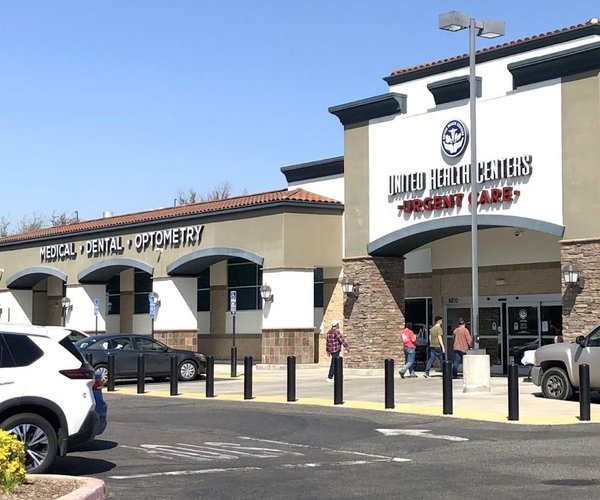Every time the Turlock City Council closes one budget gap, the state legislature seems to open up a new one.
Last week, city labor groups agreed to contract concessions including increased retirement contributions, reductions in healthcare services, and eliminating the practice of “selling back” vacation time. The move resulted in a $1.3 million savings to the City of Turlock, slashing the city’s budget deficit to $1.9 million.
But before the ink dried on the revised labor contracts, the Turlock City Council was already hearing of the deficit worsening due to new, potentially illegal, state actions.
“The state legislature seems perfectly willing to violate the constitution on a regular basis,” said Turlock City Manager Roy Wasden.
The state seems prepared to withhold $250,000 in vehicle license fees, intended for the City of Turlock, to pay its own deficits. A further $100,000 could be withheld from policing grants.
While the City of Turlock is not yet ready to incorporate the losses into their budget, as the changes are not yet finalized, the newest takes could be just a drop in the bucket compared to what the city should be receiving.
“Currently, the calculations I’ve seen show that the revenue that’s retained in local government is less than 1 percent of the money collected (by the state),” Wasden said.
Turlock remains hopeful that the new measures will not take effect, due to questions of constitutional legality. Voters approved Prop 22 in 2010, a measure intended to prevent some “seizing, diverting, shifting, borrowing, transferring, suspending, or otherwise taking or interfering with” revenue dedicated to local government.
According to Turlock Councilman Forrest White, members of the state legislature never expected some of the budget measures to survive legal challenges. The new sources of revenue were merely to show money on paper, White explained, so the state could borrow more money against the revenues before courts overturned the seizures.
“Amazing,” Turlock Mayor John Lazar said.
“That's what they've done the last 10 years,” Councilwoman Mary Jackson replied. “It's just another dog and pony show.”
“Smoke and mirrors,” Lazar said.
It’s not just the state legislature that Turlock is fighting to keep its budget balanced. Even towns within Stanislaus County are now sparring over the scraps left by state government.
At a recent Stanislaus County Council of Governments meeting, one city attempted to take a larger than expected share of state transit funds. Jackson, who represents Turlock at StanCOG, said the discussion was “lively,” with $500,000 at stake for the City of Turlock, before other towns banded together to ensure all received their usual, fair share.
“It was a very heated discussion, but it was good for the city because we saved our money,” Jackson said.
Even the full share of transit funds is expected to come in lower than projections, possibly leading to a $500,000 gap.
The bad news keeps coming for Turlock, with county property tax revenues expected to decline by $115,000 this year. Increasing health care and retirement costs could have a sharp impact on year-end totals, as well.
The lone bright spot in the City of Turlock’s budget picture comes in the form of carryover funding from the 2010-2011 fiscal year. While the books have yet to close, Turlock anticipates receiving about $500,000 in carryover funding, reducing some of the deficit spending gap.
The City of Turlock expects to adopt a further budget amendment in the December timeframe, finalizing some of the anticipated changes.
But even before that, the city will have to deal with a potential elimination of its Redevelopment Agency – a further consequence of the State of California’s 2011 budget. Such agencies should be protected under Prop 22 as well, the city argues, with a California Supreme Court case in progress.
Should the state win the lawsuit, Turlock will be faced with an ultimatum: either shut down its RDA, or issue the state a large payment – $3.2 million this year and an additional $450,000 annually – to keep the agency operational.
Without a redevelopment agency, Turlock would likely have to abandon the planned Avena Bella affordable housing project, effectively throwing away the $1.2 million already spent on the project for land acquisition and pre-development. Two proposed “job-creating projects,” offering almost 300 jobs in total, may be halted as well, as the companies may not relocate to Turlock without RDA assistance.
Eliminating the RDA would also curtail or halt graffiti abatement and code enforcement activities, which are currently funded by RDA dollars. As many as seven positions across Turlock could be eliminated, and as much as $225,000 in costs could be shifted to Turlock’s cash-strapped general fund budget.
The state’s “ransom” for redevelopment agencies drew the ire of Councilwoman Amy Bublak, who urged the council to fight back by sending the state a bill for millions in unpaid obligations. Turlock Senior Accountant Marie Lorenzi said the state was aware of their debts, but appeared in no hurry to repay them.
“They (the state) can make the rules as they go along, and we just have to go, ‘Please, can we give you our money,’” Bublak said.
Bublak, a City of Modesto police officer, cited code sections for felony extortion from memory.
“Can we have you arrest the Governor?” Lazar asked.
“Absolutely,” Bublak said. “I'll be up there tomorrow.”
To contact Alex Cantatore, e-mail acantatore@turlockjournal.com or call 634-9141 ext. 2005.









